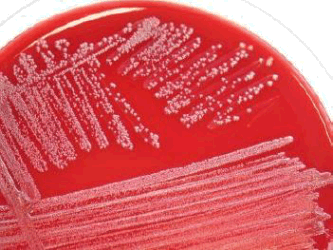 The New York Times editoriaizes on the CDC study that found 23,000 people a year die each year due to infections from drug resistant bacteria:
The New York Times editoriaizes on the CDC study that found 23,000 people a year die each year due to infections from drug resistant bacteria:
The new report, for the first time, puts 17 drug-resistant bacteria and a dangerous fungus into three categories based on how big a threat they pose. Three were deemed “urgent threats,” including a bacterium, known as CRE, that is resistant to most drugs and kills a high percentage of people who become infected with it. Though it is rare, causing 600 deaths a year, it has been identified in health facilities in 44 states. Further spread of the germ or transfer of its resistance genes to other germs could lead to a “nightmare scenario,” the agency said. Twelve drug-resistant strains, including such common germs as salmonella, tuberculosis and MRSA, were classified as “serious threats.”
Scientific American also covers a paper published in JAMA Internal Medicine that links pig manure fertilizer to MRSA (methicillin-resistant staphylococcus aureus infections in humans. From Scientific American:
The team analyzed cases of two different types of MRSA — community-associated MRSA (CA-MRSA), which affected 1,539 patients, and health-care-associated MRSA (HA-MRSA), which affected 1,335 patients. (The two categories refer to where patients acquire the infection as well as the bacteria’s genetic lineages, but the distinction has grown fuzzier as more patients bring MRSA in and out of the hospital.) Then the researchers examined whether infected people lived near pig farms or agricultural land where pig manure was spread. They found that people who had the highest exposure to manure — calculated on the basis of how close they lived to farms, how large the farms were and how much manure was used — were 38% more likely to get CA-MRSA and 30% more likely to get HA-MRSA.
Expect to hear about this more and more.

